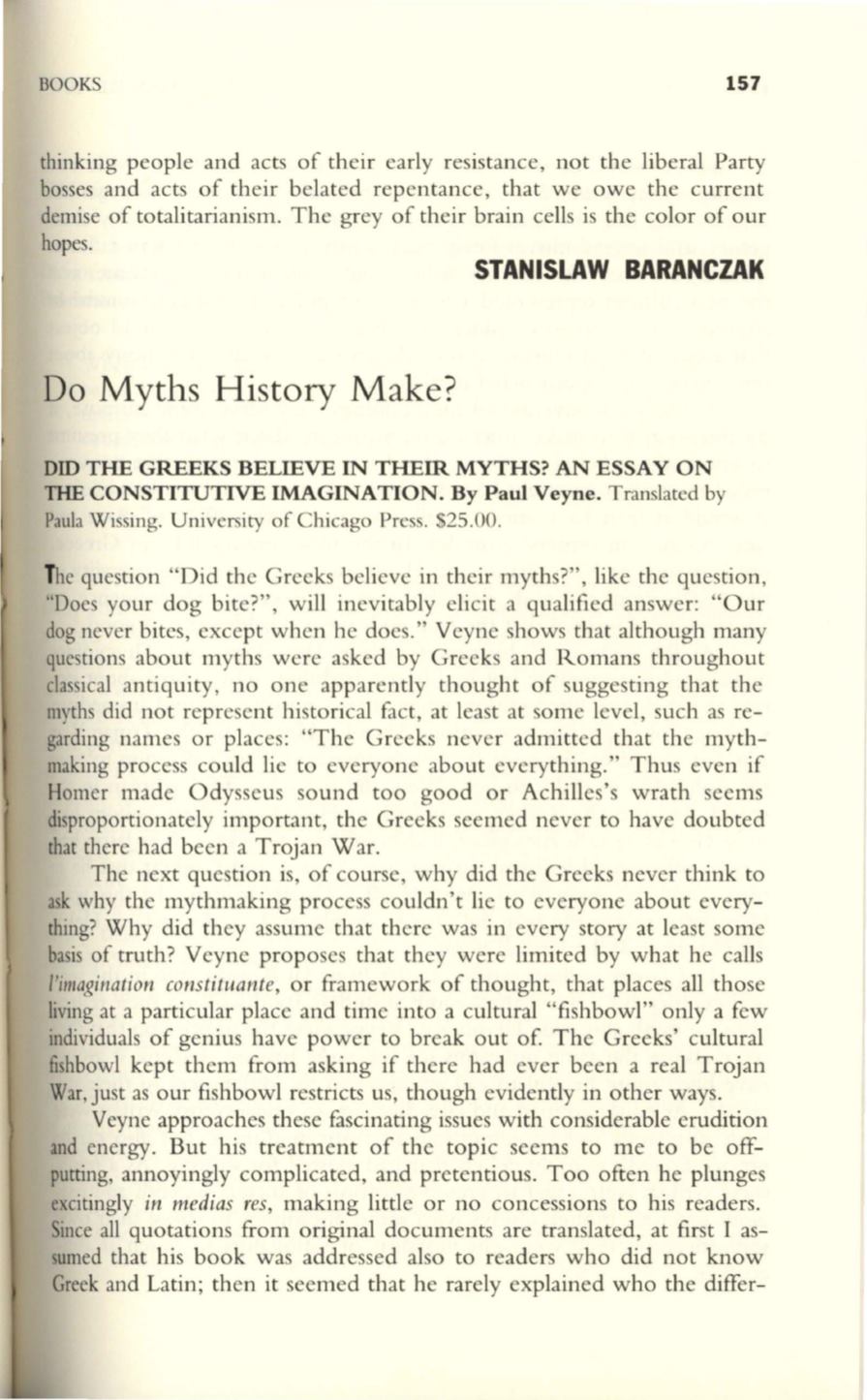
BOOKS
157
thinking people and acts of their early resistance, not the liberal Party
bosses and acts of their belated repentance, that we owe the current
demise of totalitarianism. The grey of their brain cells is the color of our
hopes.
STANISLAW BARANCZAK
Do
Myths History Make?
DID THE GREEKS BELIEVE IN THEm MYTHS? AN ESSAY ON
THE
CONSTITUTIVE IMAGINATION. By
Paul
Veyne. Translated
by
Paula
Wissing. University of Chicago Press.
S25.00.
The question "Did the Greeks believe in their myths?", like the question,
"Does your dog bite?", will inevitably elicit a qualified answer: "Our
dog never bites, except when he does." Veyne shows that although many
questions about myths were asked by Greeks and Romans throughout
classical antiquity, no one apparently thought of suggesting that the
myths did not represent historical fact, at least at some level, such as re–
garding names or places: "The Greeks never admitted that the myth–
making process could lie to everyone about everything." Thus even if
Homer made Odysseus sound too good or Achilles's wrath seems
disproportionately important, the Greeks seemed never to have doubted
that there had been a Trojan War.
The next question is, of course, why did the Greeks never think to
ask why the mythmaking process cou ldn't lie to everyone about every–
thing? Why did they assume that there was in every story at least some
basis of truth? Veyne proposes that they were limited by what he calls
I'imagination constituante,
or framework of thought, that places all those
living at a particular place and time into a cu ltural "fishbowl" only a few
individuals of genius have power to break out of The Greeks' cultural
fishbowl kept them from asking if there had ever been a real Trojan
War, just as our fishbowl restricts us, though evidently in other ways.
Veyne approaches these fascinating issues with considerable erudition
and energy. But his treatment of the topic seems
to
me to be off–
putting, annoyingly complicated, and pretentious. Too often he plunges
excitingly
in medias res,
making little or no concessions to his readers.
Since all quotations from original documents are translated, at first I as–
sumed that his book was addressed also to readers who did not know
Greek and Latin; then it seemed that he rarely explained who the differ-


